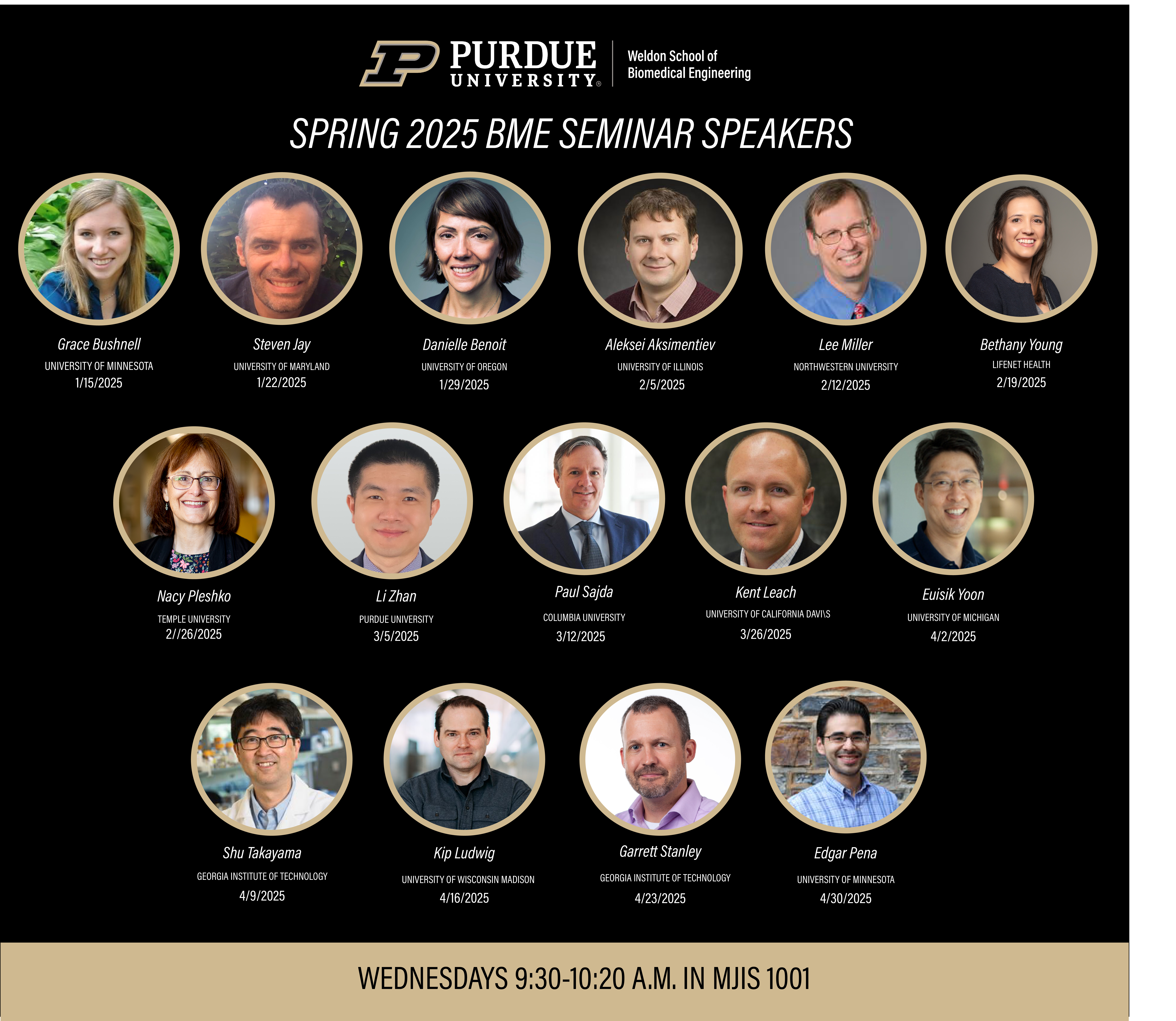Closed-loop Non-Invasive Neural Therapeutics with Paul Sajda, Vikram S. Pandit Professor of Biomedical Engineering and Chair of the Biomedical Engineering Department at Columbia University
| Event Date: | March 12, 2025 |
|---|---|
| Hosted By: | Krishna Jayant |
| Time: | 9:30 - 10:20 am |
| Location: | MJIS 1001 and via zoom |
| Priority: | No |
| School or Program: | Biomedical Engineering |
| College Calendar: | Show |
Abstract:
Precision and personalized neurostimulation, such as transcranial magnetic stimulation (TMS), is considered vital for effectively treating psychiatric disorders like major depressive disorder (MDD). This presentation introduces our integrated instrument—simultaneously combining functional magnetic resonance imaging (fMRI), electroencephalography (EEG), and TMS (collectively termed “fET”)—designed to optimize the timing of TMS delivery to maximize engagement of therapeutic targets, specifically the anterior cingulate cortex. We will discuss findings from a double-blind clinical trial utilizing the fET system to establish individualized parameters for a closed-loop EEG-TMS neurostimulator in MDD treatment. Our results indicate that this precision-tailored stimulation, synchronized with specific brain dynamics, influences neural activity patterns, functional and effective connectivity, and ultimately enhances clinical outcomes. This approach paves the way for novel non-invasive neural therapies, customized to both individual patients and specific conditions.
Bio:
Paul Sajda is the Vikram S. Pandit Professor of Biomedical Engineering and Chair of the Department of Biomedical Engineering at Columbia University. He is also a Professor of Electrical Engineering and Radiology (Physics) and a Member of Columbia’s Data Science Institute, and an Affiliate of the Zuckerman Institute of Mind, Brain, and Behavior. He received a BS in electrical engineering from MIT in 1989 and an MSE and PhD in bioengineering from the University of Pennsylvania, in 1992 and 1994, respectively. Professor Sajda is interested in what happens in our brains when we make a rapid decision and, conversely, what processes and representations in our brains drive our underlying preferences and choices, particularly when we are under time pressure. His work in understanding the basic principles of rapid decision-making in the human brain relies on measuring human subject behavior simultaneously with cognitive and physiological state. Professor Sajda applies the basic principles he uncovers to construct real-time brain-computer interfaces that improve interactions between humans and machines. He is also applying his methodology to understand how deficits in rapid decision-making may underlie and be diagnostic of many types of psychiatric diseases and mental illnesses. Professor Sajda is a co-founder of several neurotechnology companies and works closely with a range of scientists and engineers, including neuroscientists, psychologists, computer scientists, and clinicians. He is a fellow of the IEEE, AMBIE, IAMBE, and AAAS e. He is also a recipient of the Vannevar Bush Faculty Fellowship (VBFF) which is the DoD’s most prestigious single-investigator award. Professor Sajda currently serves as the President of IEEE EMBS (23-24).
Hosted by Jayant Krishna, PhD
Zoom Link: https://us02web.zoom.us/j/86099389292?pwd=99JoUbVXAL9QhInpWrzBtaOpP7kCbk.1%20#success
Students registered for the seminar are expected to attend in-person.
MARK YOUR CALENDARS

2025-03-12 09:30:00 2025-03-12 10:20:00 America/Indiana/Indianapolis Closed-loop Non-Invasive Neural Therapeutics with Paul Sajda, Vikram S. Pandit Professor of Biomedical Engineering and Chair of the Biomedical Engineering Department at Columbia University MJIS 1001 and via zoom

